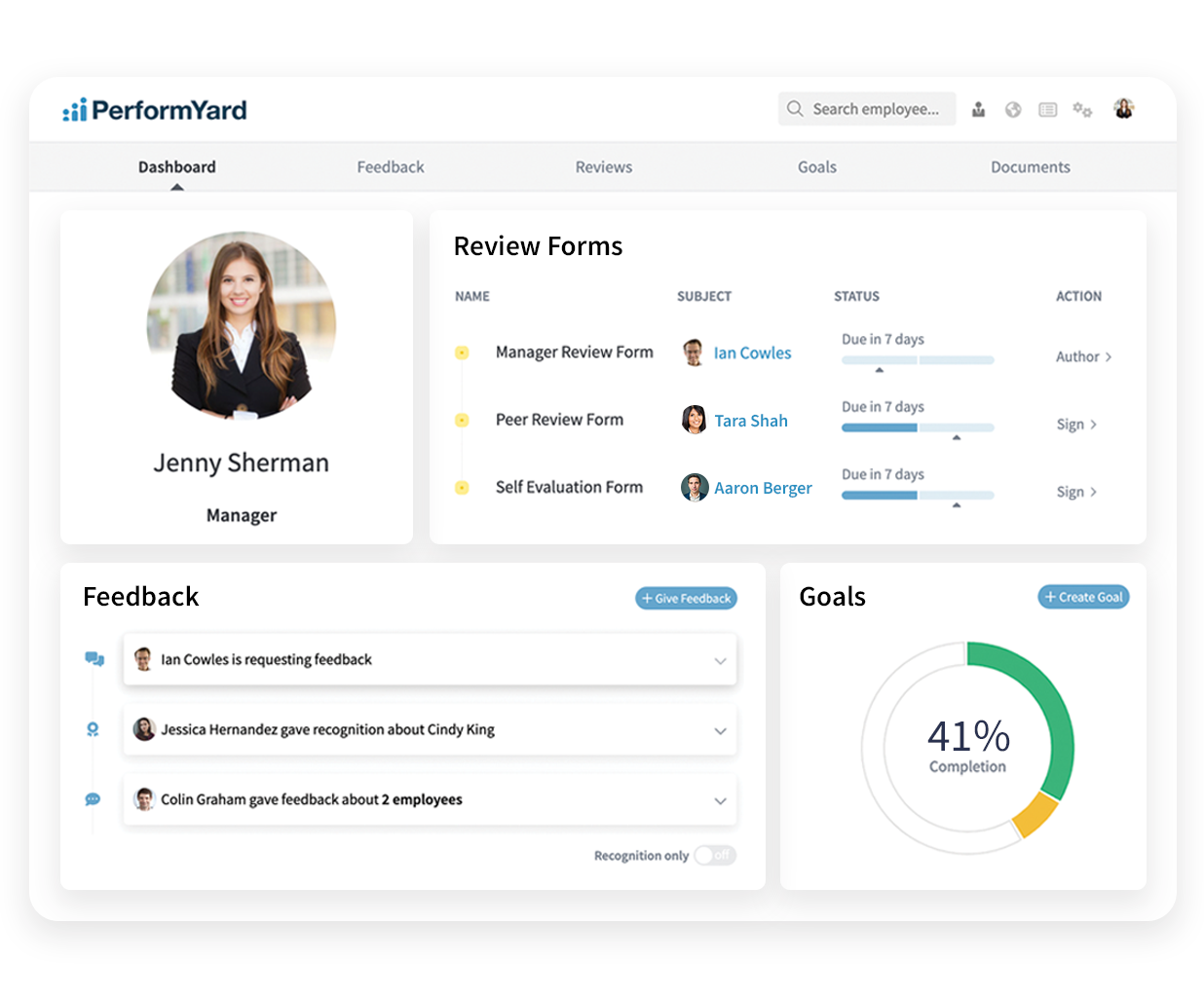Performance Management in Healthcare: Best Practices & Pitfalls
In healthcare, performance management isn't about managing tasks. It plays a big role in the quality of care and how patients fare. Staff performance, including their efficiency and job satisfaction, affects patient care. So, for healthcare groups wanting the best for their patients, it's vital to use a modern performance management system.
This article outlines strategies and challenges to guide organizations towards excellence.
Best Practices in Healthcare Performance Management
1. Setting Clear Goals
It's essential to have clear, trackable, and reachable goals for effective performance management. These goals should match the organization's mission, values, and future plans. For example, goals might include cutting down patient wait times or boosting patient satisfaction.
At the Cleveland Clinic, a clear goal was set to reduce wait times during the patient transfer process. Through process improvements and training, they achieved this objective and improved patient satisfaction.

2. Continuous Feedback
Healthcare is always changing, so feedback can't happen once a year. Regular meetings, reviews by peers, and instant feedback help create a culture where everyone aims to do better and react quickly.
3. Using Performance Metrics
Key performance indicators can provide a quantitative assessment of individual and organizational performance.
For example, the Geisinger Health System uses comprehensive performance metrics such as readmission rates, patient satisfaction scores, and treatment success rates. This allows them to test and improve the performance of its healthcare professionals and services.
4. Investing in Training and Development
Healthcare is ever-evolving with new technologies, treatments, and protocols. Regular training ensures professionals know the latest methods, leading to better patient care.
5. Promoting a Culture of Open Communication
Encouraging open communication fosters a supportive environment. Individuals feel comfortable discussing challenges, suggesting improvements, and learning from mistakes.
6. Leveraging Technology
Technology plays a key role in creating processes that are adaptable and responsive. Take, for example, The Colorado Health Foundation. They needed flexibility to make changes on the fly:
“In year one we did monthly conversations, but we consolidated that to quarterly in year two. We also needed totally customizable forms. Restrictive templates weren’t going to work for us.
What we love most about PerformYard is that it allows us to be fluid. We can do as much as we want, or as little as we want based on the feedback from our organization.”

Pitfalls to Avoid in Healthcare Performance Management
1. Relying Too Much on Data
Data is important, but focusing only on numbers can miss the human side of healthcare. It's key to mix data with personal evaluations for a full view of performance.
Say, for example, a hospital focuses on reducing wait times to improve performance metrics. In the process, the quality of patient interactions diminishes. Healthcare professionals rush through appointments, leading to decreased patient satisfaction.
2. Lack of Individualized Approach
Every healthcare worker is different. Using a one-size-fits-all method can make employees feel less motivated and limit their growth.
Consider the outcome when a healthcare facility uses a generic approach for all staff. There are many unique roles and responsibilities in healthcare settings. A generic approach would leave employees feeling undervalued and misunderstood.
3. Overlooking Soft Skills
Soft skills like communication, empathy, and teamwork are as crucial as technical skills in healthcare. Ignoring the development of soft skills can affect patient satisfaction and team cohesion.
4. Not Enough Training
Lack of training and support can cause healthcare professionals to burn out and reduce care quality.
5. Resisting Change
Some organizations don't quickly adopt new ways of doing things. If staff aren't on board or resist change, new performance management methods might not work, and the benefits won't be seen.
Leveraging Technology for Enhanced Performance Management
In the modern healthcare landscape, technology can significantly enhance performance management. Systems like PerformYard can centralize goal-setting, feedback, and performance checks. This allows healthcare organizations to focus on delivering exceptional patient care.
Performance management in healthcare is a nuanced and critical endeavor. Adopt these best practices to support staff growth, boost performance, and offer the best patient care. Moreover, consider technology solutions like PerformYard to streamline processes and ensure consistency.
Ready to elevate your healthcare organization’s performance management process? Connect with the experts at PerformYard to discuss your unique needs and explore how we can help drive excellence.



